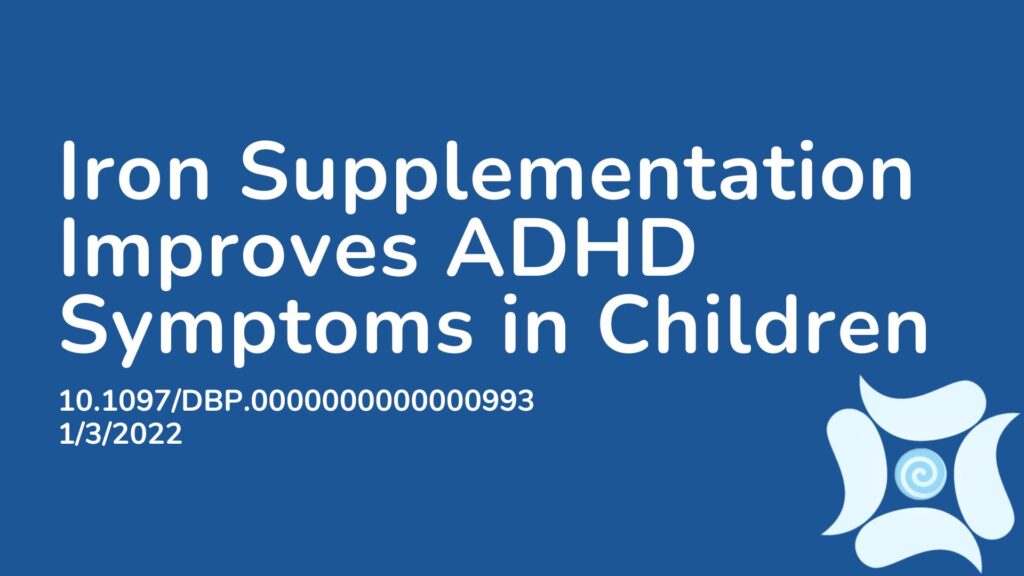Summary:
The aim of this study was to evaluate the effectiveness of combined iron supplementation and methylphenidate treatment (commonly known as Ritalin) on Attention-Deficit/Hyperactivity Disorder (ADHD) symptoms in children/adolescents with both ADHD and iron deficiency. This was a randomized controlled trial that compared iron supplements and methylphenidate with treatment using methylphenidate alone. A total of 116 children/adolescents with ADHD were screened for iron deficiency. Of these, 52 participants (44.8%) were found to have iron deficiency. These 52 participants were then randomized into the iron supplementation group (26) and the placebo group (26). Most participants in each group were already taking methylphenidate twice daily. After the 12-week study period, symptom scores reported by parents showed significant improvement in the iron supplementation group compared to the placebo group. The authors concluded that children with ADHD and iron deficiency who received both methylphenidate and iron supplementation showed improved ADHD symptoms as reported by parents.
Abstract:
Objectives: To determine the effectiveness of combined iron supplementation and methylphenidate treatment on attention-deficit/hyperactivity disorder (ADHD) symptoms in children/adolescents with ADHD and iron deficiency compared with methylphenidate alone.
Methods: In total, 116 children/adolescents with ADHD were screened for iron deficiency. Participants who exhibited iron deficiency were randomized into 2 groups (ferrous supplementation vs placebo). Vanderbilt ADHD rating scales were completed by parents and teachers at prestudy and poststudy periods. Student’s t tests were used to determine improvements of Vanderbilt scores between the groups.
Results: Among 116 children who participated in this study, 44.8% (52/116) met the criteria for iron deficiency. Of the total 52 participants with iron deficiency, 26 were randomized to the ferrous group and 26 to the placebo group. Most participants in each group had been prescribed short-acting methylphenidate twice daily in the morning and at noon. After a 12-week study period, total parents’ Vanderbilt ADHD symptom scores showed a significant improvement between the groups (mean decrement = -3.96 ± 6.79 vs 0 ± 6.54, p = 0.037). However, teachers’ Vanderbilt ADHD symptom scores showed no difference between the groups.
Conclusion: Children with ADHD and iron deficiency being on methylphenidate and iron supplementation had shown improvement of ADHD symptoms that were reported by parents.
Article Publication Date: 1/3/2022
DOI: 10.1097/DBP.0000000000000993



